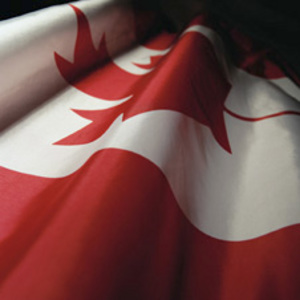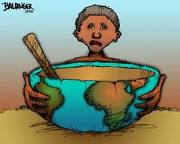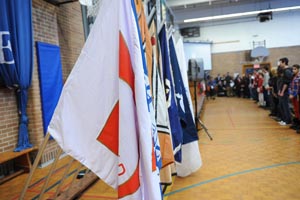 The Muslim states of North Africa have undergone a fair amount of turmoil in the past two months—people clamoring for a political voice in largely one-party states. This began with significant protests in February in Tunisia. It swiftly moved to Egypt and what some are calling the “Twitter Revolution” , which led to the resignation of long-serving President Mubarak.
The Muslim states of North Africa have undergone a fair amount of turmoil in the past two months—people clamoring for a political voice in largely one-party states. This began with significant protests in February in Tunisia. It swiftly moved to Egypt and what some are calling the “Twitter Revolution” , which led to the resignation of long-serving President Mubarak.
In most of North Africa’s kingdoms or one-party states, the Arab world is experiencing what the Economist magazine last week described on its cover as “The Awakening” —a thrust toward democratic principles and rights, and a desire, especially by young people, to have their voices and opinions heard. It’s amazing to see how powerful the yearning is in so many countries for democratic rights and the acceptance of diverse political voices. The “awakening:” it’s an interesting label for this phenomenon.
Here in Canada, we all possess the hard-won rights of a democracy. This includes the rule of law, a host of freedoms, the right to disagree with our government and even to protest peacefully when we want to take a particular position on a particular topic.
Last Saturday our federal parliament was dissolved and our political parties are now on the campaign trail from coast to coast to coast, with an election day slated for Monday, May 2— just a few weeks from now. However, with all our rights and freedoms— and an electoral process that allows us to do battle in the political arena rather than solve problems with the end of a gun— large segments of our population seem disengaged from the political process.
Too often, political issues have become someone else’s concern. In fact, when it comes to voting in Canada, voter turnout has dropped consistently since the mid 1980s, from about 75% of eligible voters participating in national elections to just above 60% in the last election. Unfortunately, the youngest sector (18-24 year-olds) seems to be the least engaged in the political process. Just above 40% bothered to go to the ballot box in Canada during the last election, close to 20% below the national average.
So blood is spilling in Arab states in north Africa over the right to participate in the political process and here in Canada we are paying less and less attention to the political process. What a sad paradox. I guess we don’t need to be concerned. Someone else will run our democracy! No need to accept the responsibilities that come with our democratic rights!
I think we should call the Economist magazine and ask who really needs an awakening, the countries of North Africa or perhaps it’s us, the sleep walking citizens of Canada. I suggest we all wake up. I asked our senior students this week to pay attention to the issues in this election campaign. They need to become familiar with our political processes as many of them will be voting next time. We will all be better off if they connect with their local communities, their Canada. —Chris Shannon, Headmaster




